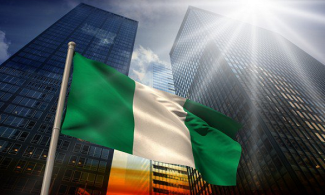
For victory to be delivered, a politician must work aggressively to ensure that the electorate is talking and preaching his mantra.

After ‘Genesis’ comes to an end, the journey to ‘Revelation’ takes flight. But when ‘Revelation’ comes to an end, there is no ‘Genesis’. This could be the reason we are yet to know what the real truth is for no one or anyone who seems to have gotten to ‘Revelation’ come back us. They all leave.
“Politics, I don’t know what that is but if you stand on my right, then I know what that is. And I don’t care who the guy is, because my right is my life and all in have is my life,” Bob Marley said in one of his numerous interviews.
Democracy is one of the best things that happened to the world. On its arrival, arbitrary and dictatorial forms of leadership were destroyed. It allowed citizens to become a part of the consciousness involved in building their country. As it is, democracy is now more like the curse affecting the growth of Africa, even though I do not wish a return to the old ways.
Every hunter is taught to always study its prey. Over the years, Democracy in Africa has evolved to become a game of popularity, not necessarily that of what the politician really has to offer.
For victory to be delivered, a politician must work aggressively to ensure that the electorate is talking and preaching his mantra. From #IHaveNoShoes to #Change, each elected democratic leader in Nigeria rode to power on a special promise. In doing all these, the people with the real power – the electorate – tend to get carried away soaking themselves deep into the mantra of the politician, and not even taking out time to question what he really has to offer.
Sometimes, I wonder which is more powerful: music or words. To me, words go a long way in reaching places music can’t reach. When people hear good words, they are happy, but when they hear bad words they get angry and most times, these words – good or bad – remain etched on their minds.
All a politician has to do is sit down, think of the theme of his message, depend on his words to build castles in the brains of the electorate and finally a big push from the media. For example, “When PDP came to power in 1999, Nigeria was generating about 4,000MW of electricity. After 15 years and $20 billion spent, we are generating between 3,000 to 4,000MW. No failure is more glaring than this. We in APC are resolved to bring change to Nigeria. We plan to do things differently,” a man from Daura promised as Nigerians prepared for the 2015 general election, and his followers shouted #Change.
Where a politician cannot gracefully deliver his message to the public, prior to the election and on the day of election, he depends on his money to do the work. Before or at the polling unit, he gives the hungry electorate some “tips” and those ones would thumbprint for him. When the one whose message had sunk into the consciousness of the electorate begins to notice this, he too also reaches for his vault of money and unleashes it on the ignorant electorate. It then becomes “the most popular with the highest money” is the winner.
The people fail to recognise their power and they refuse to see that this thing called GOVERNMENT is not about the people in the ivory tower, but about them who cast their votes based on promises given to them by these manipulative men.
Although, not all political candidates are manipulative, the winner at the end of the day is the one with the most popular mantra. Buhari, Trump, George Weah... you know the rest.
Popularity is the new Democracy.